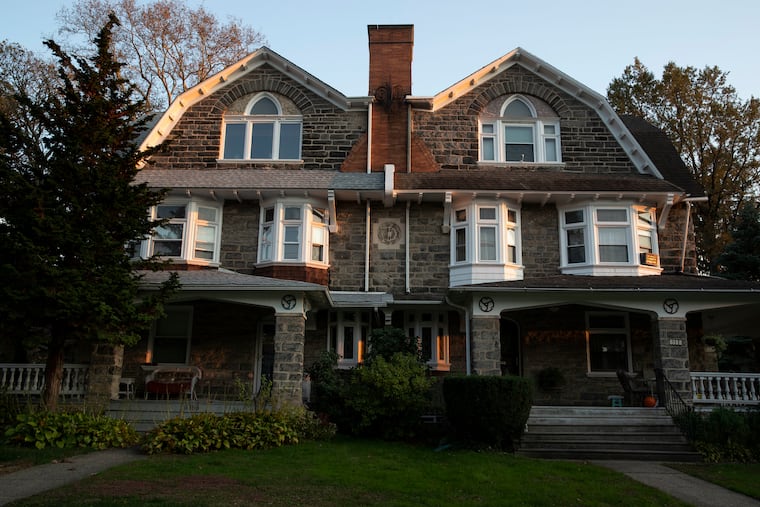West Philly’s Overbrook Farms declared a historic district, protecting properties from demolition
The Philadelphia Historical Commission voted Friday to make Overbrook Farms a historic district, ending a nearly 15-year battle between neighborhood residents.

The Philadelphia Historical Commission voted Friday to designate Overbrook Farms as a historic district, granting protection to hundreds of century-old mansions and buildings near the Lower Merion Township border.
The unanimous vote by the commission ends a nearly 15-year battle to obtain historic protection for 501 properties in the neighborhood — a proposal that, for years, was met with vehement opposition by some residents. Creating a district means that all exterior alterations — and demolitions — within the established boundaries must be approved by the 14-member commission. Some neighbors worried that the city’s architectural oversight would require that they spend more for renovations and maintenance.
Preservationists in the city are supportive of historic districts because they help maintain the character of entire blocks or areas, allowing swaths of the city to be generally immune from disjointed new construction. Yet Philadelphia — despite being one of the oldest cities in the nation — possesses only 23 historic districts, a figure that historic protection advocates say is far too low. (The Overbrook Farms decision brings the count to 24.)
Historic districts can be created for areas that share common geography, and districts exist for areas including Old City and Manayunk’s Main Street. Yet the Historical Commission has also authorized the creation of “thematic” districts, meaning structures that share architectural features. Earlier this year, for example, the commission approved the “Cast Iron Subway Entrances Thematic District,” which granted protection to several dozen transit entryways citywide.
At Friday’s meeting, no one spoke in opposition to the Overbrook Farms Historic District — representing a stark difference from years ago, when residents protested. Three people spoke in favor of the designation — Patrick Grossi, of the Preservation Alliance for Greater Philadelphia; David Traub, of Save our Sites; and Thaddeus Squire, chair of the Overbrook Farms Club, the registered community organization for the neighborhood.
In comments to the commission, Squire said that his organization in October distributed a survey asking residents how they felt about the district. With about one-third of the neighborhood responding, he told the commission that nearly 60% of households indicated support.
Overbrook Farms was established in 1892, when Anthony J. Drexel and members of the Drexel Syndicate — a group of investors tied to Drexel & Co., one of the world’s most powerful banks — purchased 171 acres on what is today the border of Philadelphia and Montgomery County. They hired the firm of Wendell & Smith to develop the neighborhood, and prominent architects, including Horace Trumbauer, were tapped to design homes.
Most of the homes in the neighborhood closely resemble their original condition.
Today, the median household income of the area surrounding the neighborhood is roughly $63,000, U.S. Census data show, and nearly 43% of the area is black. Home sales in the neighborhood tend to hover between $250,000 to $550,000.
The application to designate Overbrook Farms was first submitted in 2004, but was ultimately tabled after a heated battle to create a historic district in Spruce Hill. (Spruce Hill still remains undesignated.) The effort to give Overbrook Farms historic status began again a few years ago.
The long battle to give Overbrook Farms historic designation highlights the simmering urban planning tensions that exist across the city amid one of the most robust building booms to date. Philadelphia has repeatedly seen historic buildings fall because of development pressure — a problem that is exacerbated, preservationists say, by a low proportion of historic protections. Just 2.2% of Philadelphia’s buildings are listed on the city’s historic register, compared with an average among 50 cities of 4.3%.